Foreign Agents Registration Act
Amidst concern about foreign influence, the Justice Department has ramped up enforcement of the Foreign Agents Registration Act (FARA). While it is understandable that policymakers want to protect U.S. politics from foreign interference, FARA is overly broad and vague. It has been repeatedly “weaponized” to target nonprofits, activists, and others. To address this problem, ICNL has called for better targeting of FARA’s provisions.
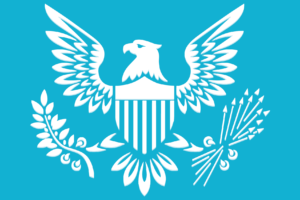
FARA Primers
Introductions to FARA
• Nick Robinson, FARA is a Catchall Statute-and That’s a Problem, Lawfare, January 2025
• ICNL’s short briefer on the danger of FARA to U.S. civil society, July 2023
• Nick Robinson, Fixing the FARA Mess, Just Security, March 16, 2022
In-Depth Analysis
ICNL, “Foreign Agents” in an Interconnected World: FARA and the Weaponization of Transparency, Duke Law Journal (2020)
Influence Abroad
• ICNL, Foreign Influence Registration Laws and Civil Society: An Analysis (2025)
• ICNL, FARA’s Double Life Abroad (2023)
ICNL’s FARA Resources
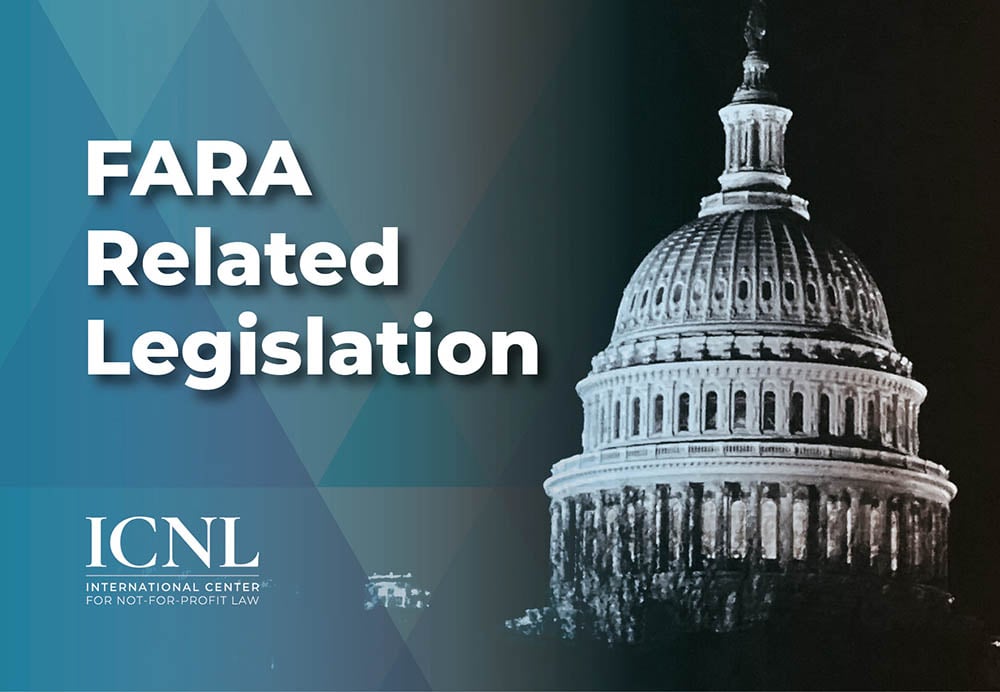
FARA Related Legislation
Members of Congress have introduced a number of bills to amend FARA. This tracker follows such legislation introduced since the 115th Congress (2017-2018).
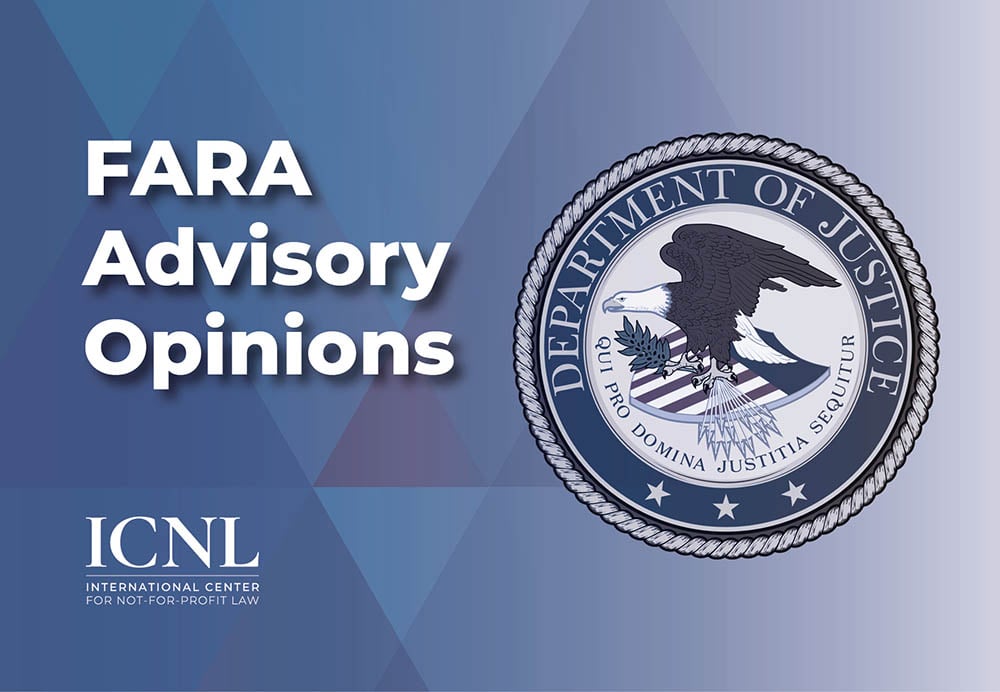
FARA Advisory Opinions
This page compiles Justice Department advisory opinions related to FARA that are particularly relevant to U.S. civil society.
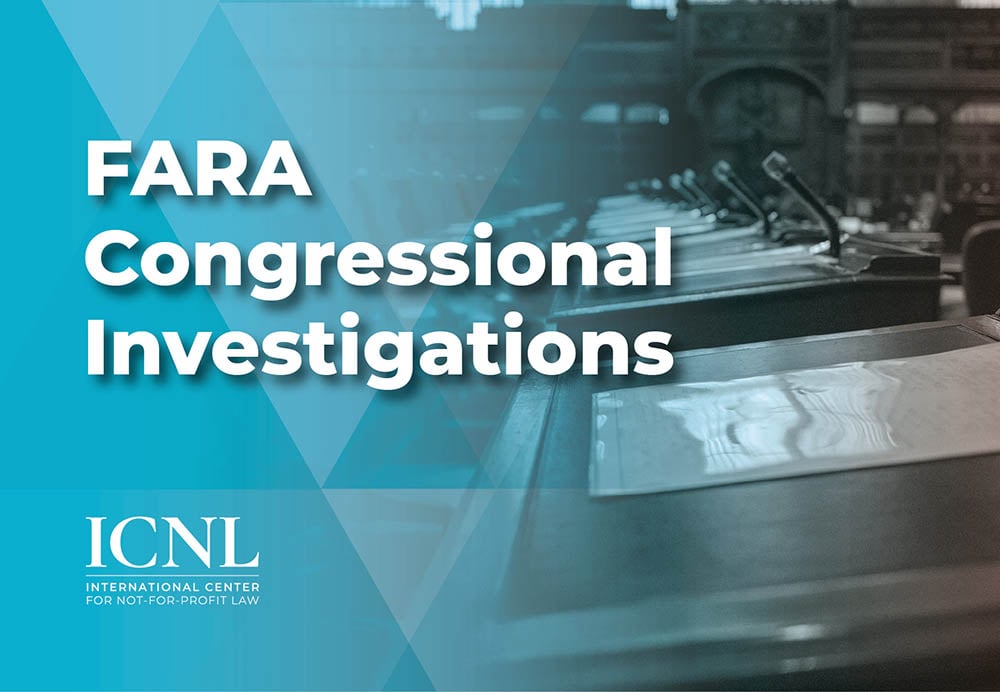
FARA Congressional Investigations
A number of investigations of civil society organizations by Congress have been based on claimed FARA violations. This page tracks such investigations since 2018.
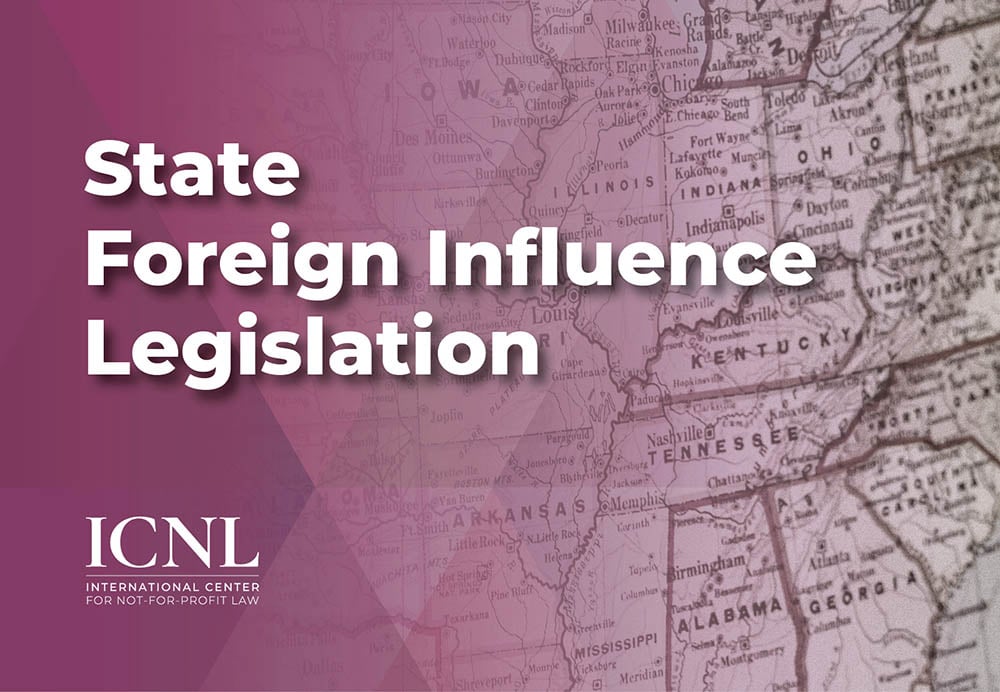
State Foreign Influence Legislation
A number of US states have introduced or enacted foreign influence legislation, often modeled on FARA. This tracker follows these state bills introduced since 2024.
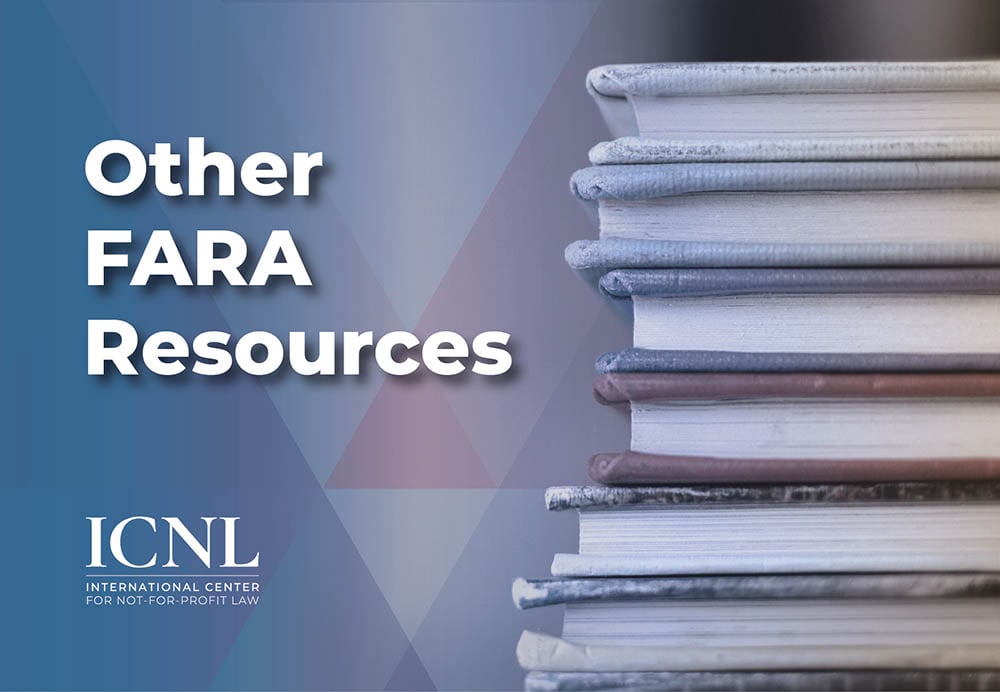
Other Resources
This page provides additional FARA resources, including ICNL submissions and sign on letters to the Justice Department as well as select articles on FARA.
For more information contact Nick Robinson at nrobinson@icnl.org.
Sign up for our newsletters
Sign up